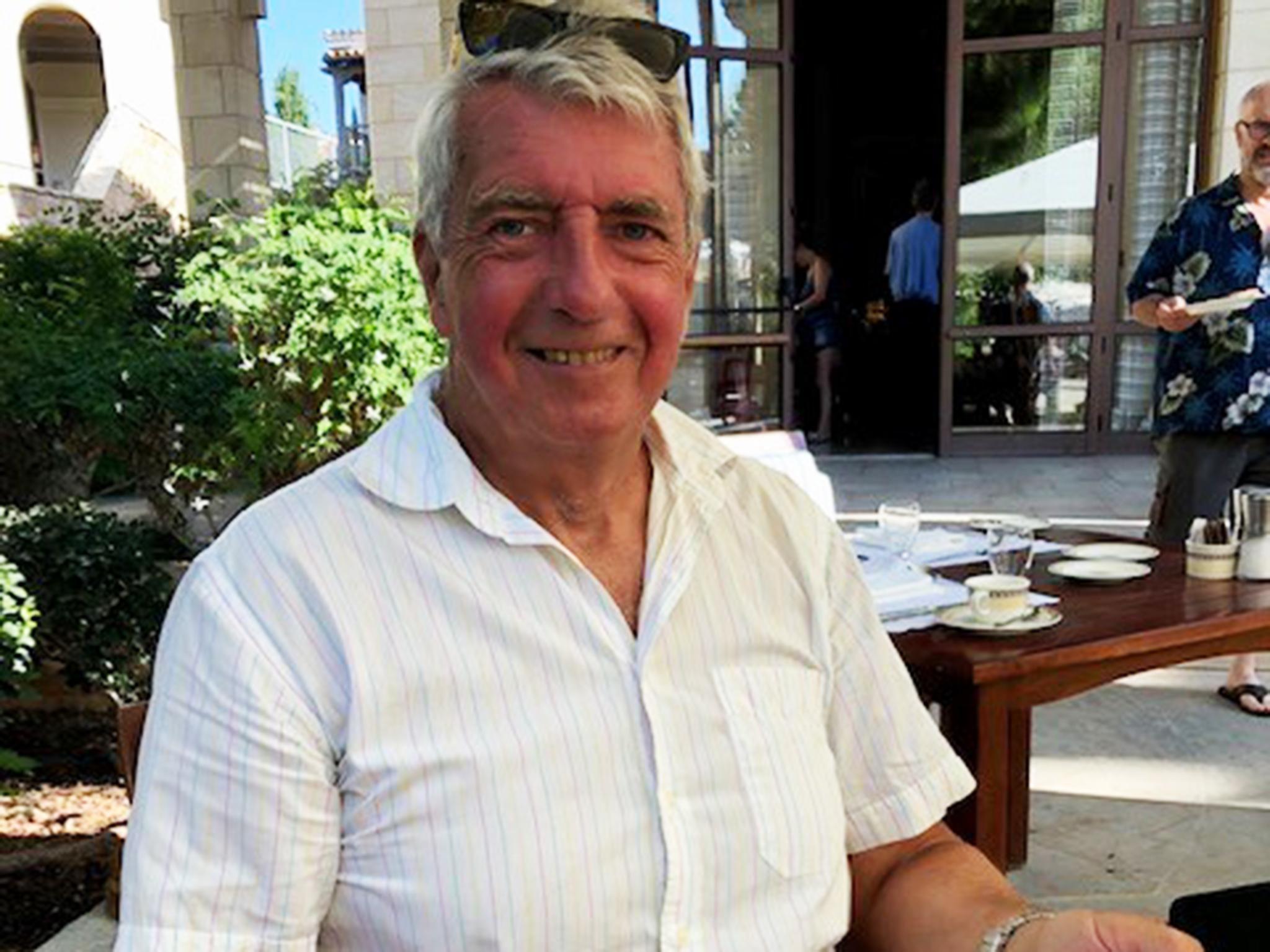Colin Brown: Independent journalist admired for his good humour, tenacity and political scoops
He was on board at the paper’s launch in 1986, and became political editor of The Independent on Sunday

Your support helps us to tell the story
From reproductive rights to climate change to Big Tech, The Independent is on the ground when the story is developing. Whether it's investigating the financials of Elon Musk's pro-Trump PAC or producing our latest documentary, 'The A Word', which shines a light on the American women fighting for reproductive rights, we know how important it is to parse out the facts from the messaging.
At such a critical moment in US history, we need reporters on the ground. Your donation allows us to keep sending journalists to speak to both sides of the story.
The Independent is trusted by Americans across the entire political spectrum. And unlike many other quality news outlets, we choose not to lock Americans out of our reporting and analysis with paywalls. We believe quality journalism should be available to everyone, paid for by those who can afford it.
Your support makes all the difference.Colin Brown, who has died aged 69 after suffering with cancer, was an admired journalist and a member of The Independent’s original team at the newspaper’s launch in 1986, rising to become political editor of The Independent on Sunday.
His career began as a teenage reporter for the Southport Visiter group in his native Lancashire, before he moved to The Sheffield Star in 1973.
His 30 years in the House of Commons press gallery began in 1978 when he became political correspondent of The Yorkshire Post. He moved to The Guardian as parliamentary correspondent the following year.
The high regard in which he was held among his fellow Westminster reporters was reflected in 1999, when he chaired the 250-strong group of lobby journalists. In 2000, he became political editor of The Independent on Sunday, under the editorship of Janet Street-Porter, winning the recognition his experience and string of exclusive stories deserved. Two years later, he became political editor of The Sunday Telegraph.
He returned to The Independent in 2004 as deputy political editor and retired in 2008, the year in which he served as chair of the parliamentary press gallery.
I was delighted to persuade him to return to The Independent as my right-hand man. He was a loyal, selfless, ever-helpful deputy when I became the paper’s political editor in 1998. He could not have made me more welcome. He was the ultimate team player – not a given in the competitive world of journalism, in which colleagues can be rivals. With good humour, he was generous with his time in helping new recruits to the lobby to learn the ropes.
Colin was never happier than when he went off on a mission to find out what was really going on, patrolling the Westminster corridors and members’ lobby next to the entrance to the Commons chamber (which gives the lobby journalists with privileged access to it their name).
Despite his long service there, Colin was not a Westminster insider. He never forgot his roots; his job was to tell people in the real world what was happening behind the scenes in the often secretive world of politics. He used his extensive network of colleagues in all parties to dig out endless scoops.
He and I worked hand in glove. I often got the plaudits for the fruits of his endless labours. I remember him returning excitedly from one patrol in 2004 to tell me that loyalist cabinet ministers were trying to talk a downcast Tony Blair out of resigning as prime minister, his popularity waning after the Iraq War. We didn’t hesitate to splash the story. Inevitably, there were denials. But it was all there in Blair’s memoirs.
A keen sportsman and stalwart of the lobby football team, Colin spent much of his retirement skiing in the French Alps in winter, from his base in Chamonix, and the summer months windsurfing in Cyprus and Whitstable in Kent, where he was a member of the local yacht club.
He wrote seven books, six of them in retirement, including Whitehall: The Street That Shaped a Nation (2009), The Scum of the Earth: What Happened to the Real Heroes of Waterloo (2015) and Operation Big: The Race to Stop Hitler’s A-Bomb (2016). His first book, Fighting Talk (1997), was a revealing biography of John Prescott, Labour’s former deputy prime minister. He found Prescott a much more complex character than he had imagined, who “in spite of the tough exterior, was privately warm, sincere and beset with self-doubts”. His account balanced the scales for a politician who, he wrote, “having been vilified for most of his career at Westminster, is in danger of becoming a national institution”.
Soon after being given the all-clear after treatment for cancer, he collapsed in Cyprus last August and brain cancer was diagnosed. He returned to his home in Blackheath, southeast London, to receive treatment.
He is survived by his wife Mandy Brown, former chief political correspondent of the Press Association.
Colin Brown, journalist, born 8 April 1950, died 9 March 2020
Andrew Grice is political commentator at The Independent
Join our commenting forum
Join thought-provoking conversations, follow other Independent readers and see their replies
Comments